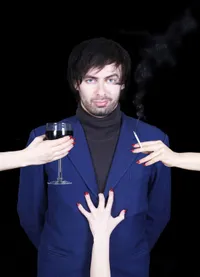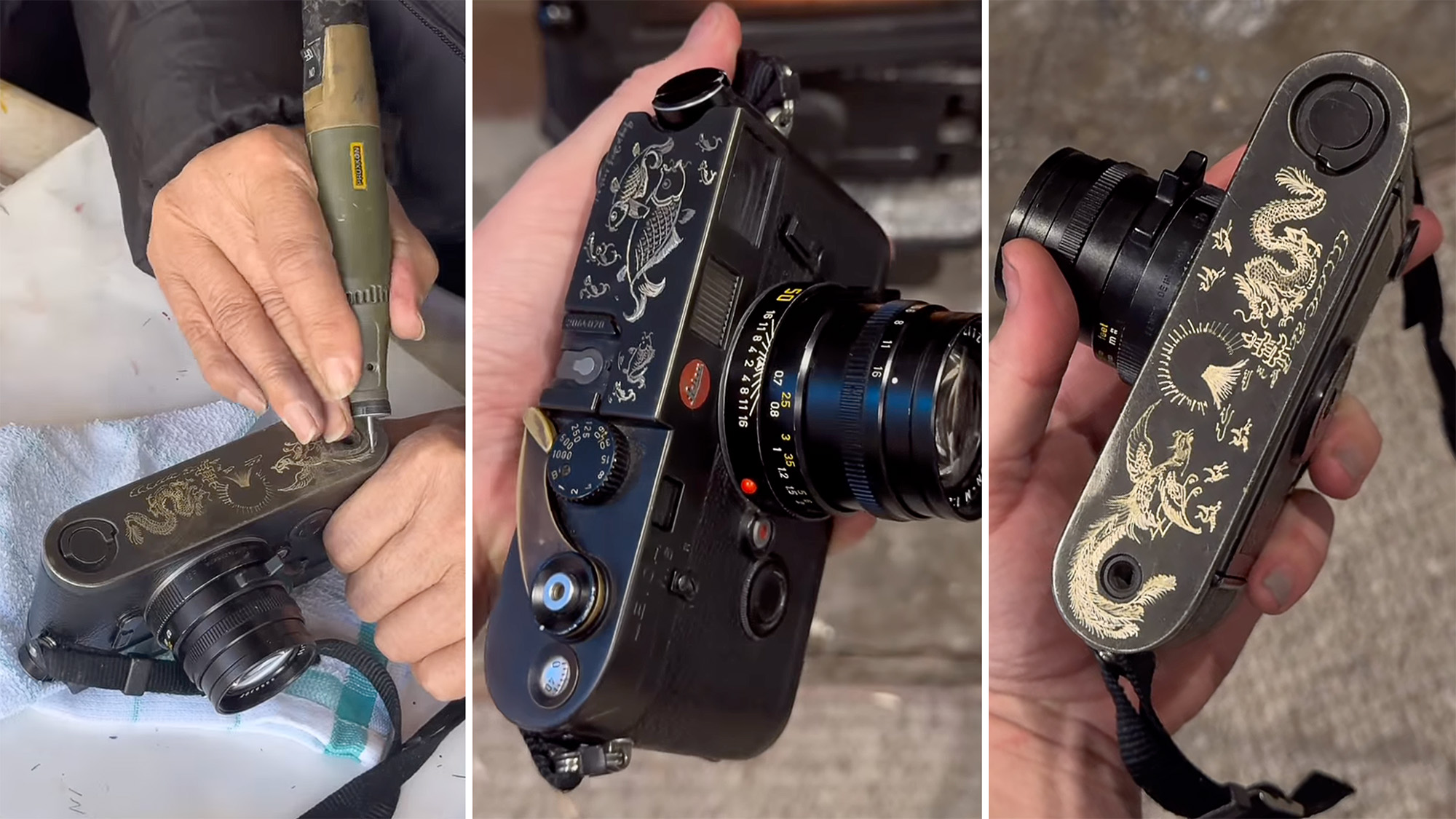"Funniest shoot ever? I nearly got blown into the Thames!"
Comedian Alexis Dubus on his 20-year sideline photographing performers
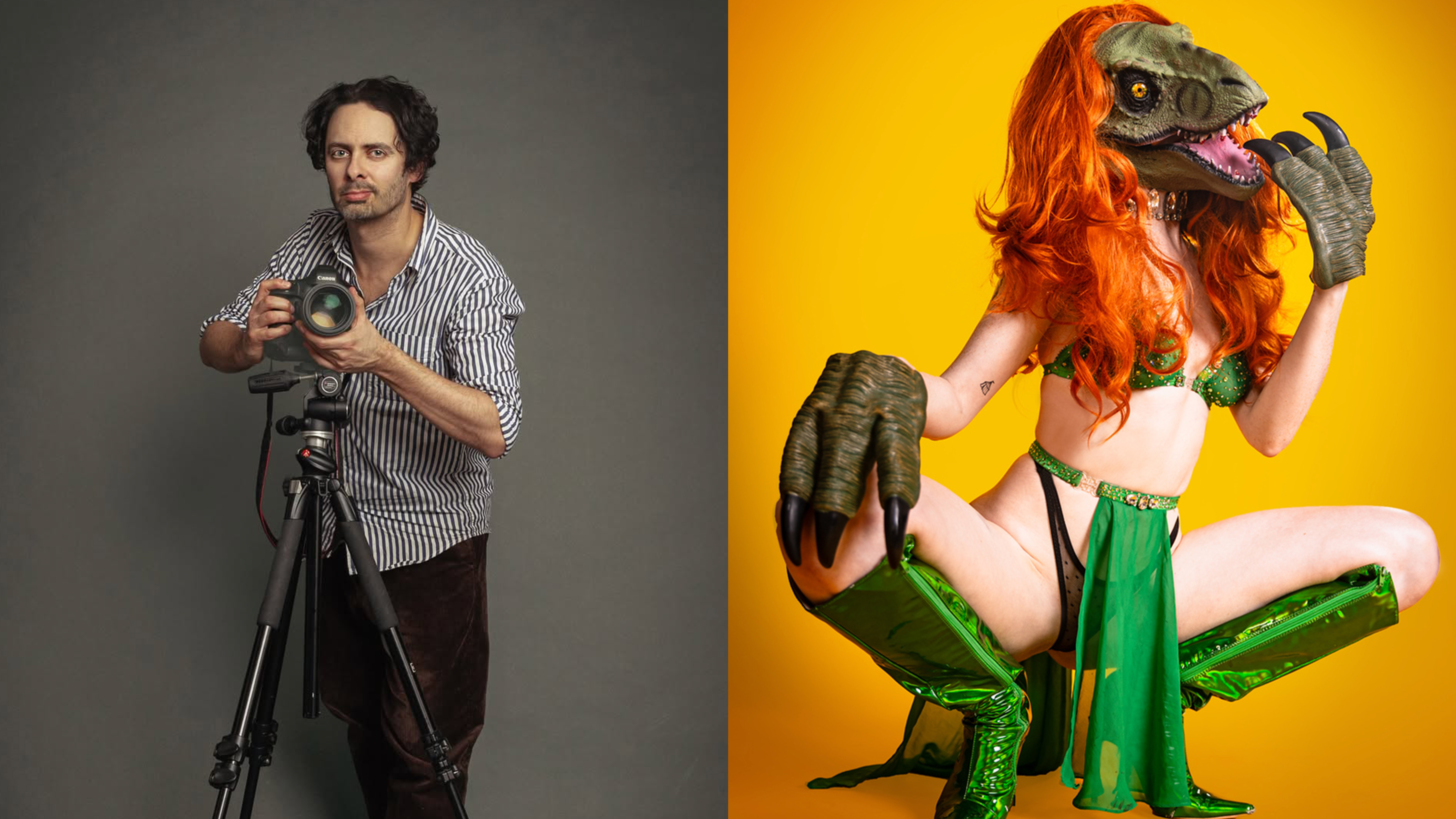
The best camera deals, reviews, product advice, and unmissable photography news, direct to your inbox!
You are now subscribed
Your newsletter sign-up was successful
I've known photographer Alexis Dubus on-and-off for over 20 years. He's now 46 and we first met on the comedy circuit when we were both comics back in 2002, when he was 23 - literally half our lives ago. He's dabbled in many different forms of standup, including playing the French character Marcel Lucont. Before this, he started a sideline in photographing performers, and has never stopped. I caught up with him over Zoom to ask about his two-decade-long photography career.
"I was doing photography as a student," he tells me. "I did darkroom training at university and got properly into the film side of it. Joined the Photography Society and did a few little bits and pieces with them. Uni is also where I really got into performing, as there were loads of performance societies as well. That's how I ended up doing Edinburgh for the first time, in 1998.
For comedians, 'doing Edinburgh' means performing at the anual Fringe Festival, a massive event where many acts break out onto the world stage.
"I did a bit of Shakespeare for the first year and then, in 1999, a bunch of us from uni formed a sketch group together. Got a little bit of funding and went up and properly did the whole month in Edinburgh.
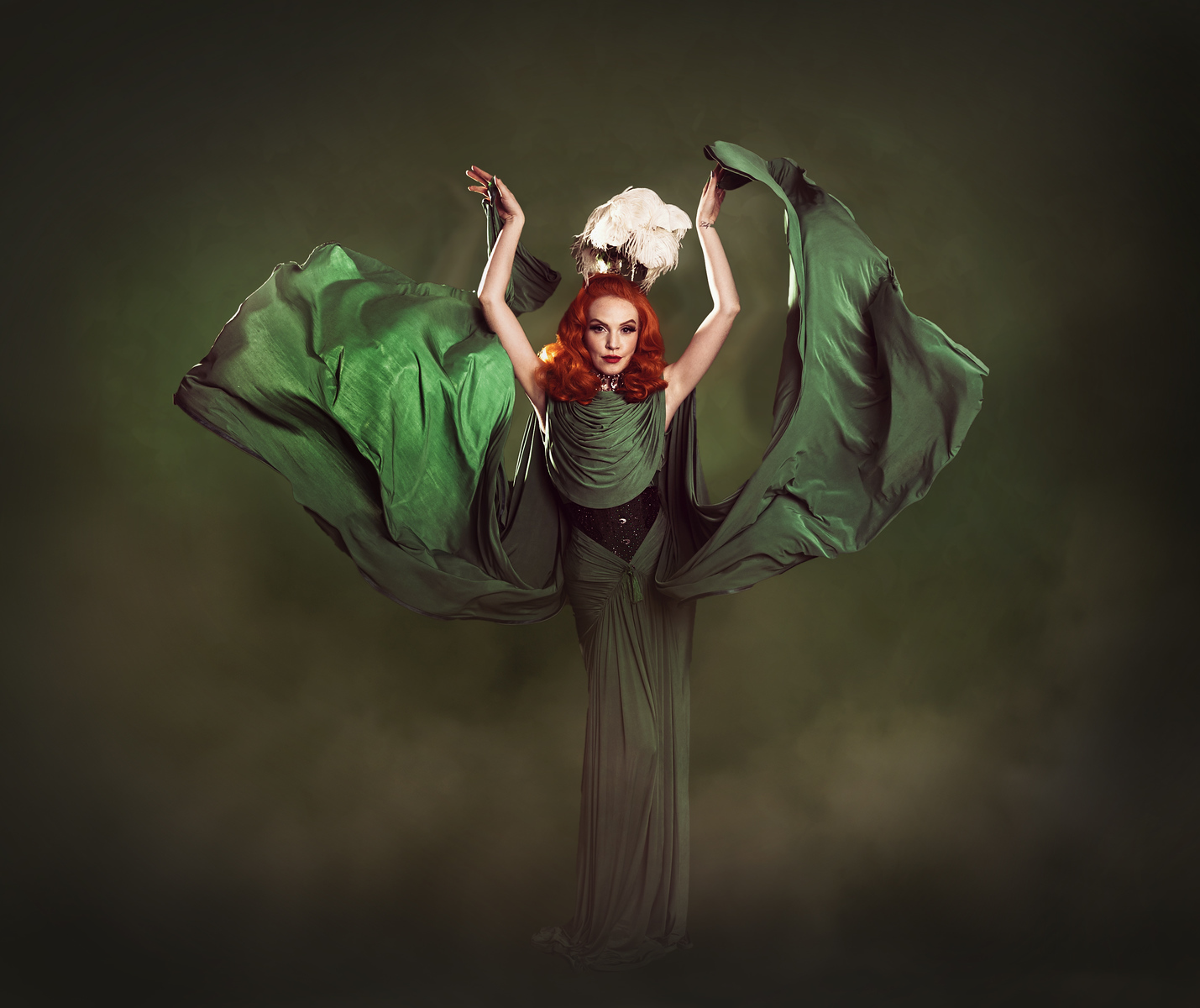
"I got properly inspired by loads of stuff at university and went: well, what do you like? I think I like doing a bit of performing, let's go. I think I like doing a bit of photography, let's go and do that. So, yeah, that's my two paths. And the seeds were planted before that: I used to watch a lot of comedy and I used to love photography and I used to have a crap little point and shoot camera."
So what did he do after leaving uni and gigging on the UK stand-up circuit?
"I did photography as a bit of a hobby and took a bit of time off from the comedy circuit in 2005. I'd been doing comedy since 2001, for four years. I got a bit restless, decided I'd never really done any proper traveling and went off to South America for five months with a little Canon SLR and two lenses. South America is the most difficult place to get shit photos – It's just such a beautiful place, and I was getting better and better at the photography. It's really interesting – I remember looking back at like the photos from the first month and the photos from the fifth month and going, 'oh good, you've actually got better at this'. I was just learning on the job, really."
I ask him whether he still shoots with Canon or whether he's changed his system. "Yeah, I still shoot with Canon. It was just what I started with. Oh God, what was the camera? It was a 350D [which was called the 'Digital Rebel' in America], I think. Yeah. And I had an all-purpose lens and a wider lens. Carried them around in my bag."
The best camera deals, reviews, product advice, and unmissable photography news, direct to your inbox!
Does he have times when he prefers the stand-up, times when he prefers the photography, or are they twin loves?
"Just twin loves," he says. "Photography in the daytime, comedy in the nighttime. I mean, I don't do a lot of photography, obviously I can't do as much event photography as I used to. I used to do quite a few events and now I'm gigging too much. I'm too busy doing the shows myself! But in the daytime, every month, I'll hire a studio in London and do four shoots in a day and just do that every month for various performers."
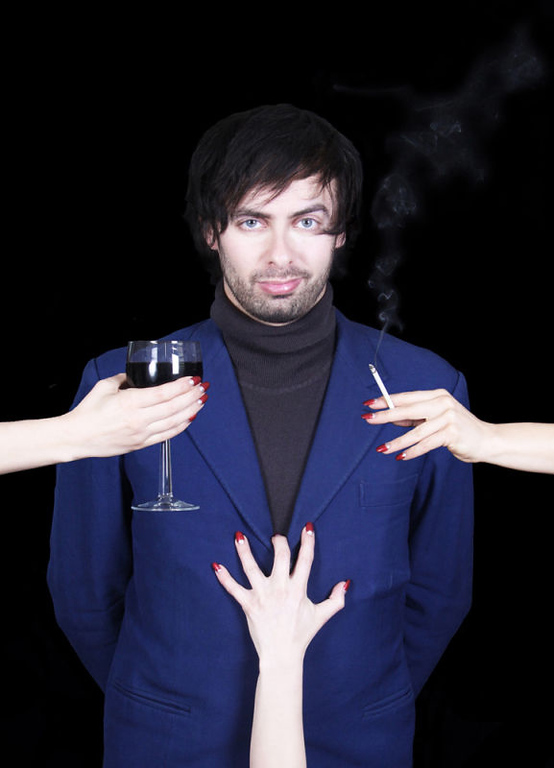
He must have found that doing the stand-up helps him find clients for the photography?
"I'm a comedy photographer and people talk to other people and I mostly get clients from word of mouth. And when I first moved to London, to get a little bit of extra money, I just did mates' headshots, $40 a pop sort of thing, really cheap headshots to build up a portfolio."
What does he charge now?
"I'm very reasonable still, actually. $289 for the session and that includes six shots and then I do $13.50 per shot after that."
What are the similarities between photography and comedy?
Is it being good with people, breaking down barriers... that kind of thing?
"Yeah, it's connection, communication... half the people I photograph, I already know and that helps, because we just have a chat and I shoot and then we take a look at the shots and do some more and it's all very free and easy. And actually, it's amazing how many performers hate having their photo taken. And most of them sort of leave going, 'Oh, God, that was painless. That was way, way easier than I thought it was going to be.' Because I just don't make a thing of it. A lot of my favorite comedy shots come from the little candid shots in between [poses] when you're not trying to set something up."
So he knows half his clients - how does he approach shooting the other half?
"The other half of the acts, I don't know at all. Obviously I watch a bit of their act before the shoot, to get an idea of what they're about. But yeah, it's [good for them to have a photographer] who knows the business a bit. So even if I don't know them as a friend, I can still have a chat about what they're doing, about various gigs. And I think having someone behind the camera who just gets it, really helps. So yeah, it's all about making people comfortable, isn't it? And getting people in the zone."
Is he quite directive?
"If they need me to be, yeah. Some acts come to me going, 'I don't know what I want. I've just got really shit iPhone shots. I've got selfies that I'm sending off to promoters', and stuff like that. And it's that thing in comedy of trying to avoid all the clichés, the old arm behind the head, the scratching of the head or leaning into the camera. I remember when I first started, every other comic seemed to have a shot that was from above, where they were just peering up at the camera."
I remember those shots too from being on the circuit.
"The little body and the big head, that kind of thing. So it's trying to desperately avoid all those comedy clichés that have come before, when you haven't got much to work with. I do a lot of cabaret shoots and in cabaret, it's really easy, because someone's got [an act], you know, or they'll quite often have props or they'll have fabulous costumes and it's quite easy to do. With a stand-up that's just [standing up], it's a bit harder to make them interesting. So there are a few props in the studio, some nice chairs, some chaise longues, nice stools, little bits and pieces. I'll try and gauge their personality and then, as I say, I'll always watch a few clips if they've got any online to get an idea. I try not to direct them too much, because it gets a bit too robotic and clunky."
"But I'll try and engage them in a conversation that will get them into being 'them' a bit more. The fallback one is always like, 'Can you just do a bit of your act, do your favorite routine?' Or, if they feel a bit awkward about that, 'just do the movements as if you're doing that routine'."
So how does he advertise his services? Has he ever run ads, or does he just post on Facebook and say, 'I've had a slot come free'?
"Pretty much that. I just put it on Facebook. There are also a couple of comedians' and cabaret Facebook groups. So if I'm short of a person one month, I'll just chuck it out there and and nine times out of ten, someone will go, 'Oh yeah, I need some new shots.' Like, especially coming up to Edinburgh, I tend to do two studio days month in May, June, July, because suddenly I just get inundated. Steve Ullathorne, bless him, who's one of the known comedy photographers... well, I like to think I'm one of the known comedy photographers now! But a couple of years ago, when Steve was the go-to guy, he would just start passing people on to me when he couldn't fit any more people in. He'd go, 'Look, I can't fit you in, but Alexis will do it,' which is really nice. In comedy, it's nice to be recognized by those who came before you and go, 'Oh, that's nice. You think I'm good enough to [pass clients] on to me...'"
The other comedy photographer is Steve Best, isn't it?
Alexis: "Yeah. Me and him chat quite a lot about [photography], because he got into it quite a bit after I started doing it, but he does black and white with his little Fuji cameras and I do more color and bold. So we don't clash."
What's the best thing about being a photographer?
"I think the reason I liked it so much in the first place and still do is because with comedy, you go and do a gig and you'll be creating something, but it's very ephemeral, it's just lost in the ether. You're done, and you're like, "Oh, well, that happened." Whereas with photography I like building up a portfolio. I like that I've got something more tangible that I've created. It's my little crafty, arty outlet."
Yeah, mine too. It's fun, isn't it?
And what's the worst thing for him about being a photographer?
"It's when people are flaky or drop out last minute and I'm scrambling around trying to replace that person in their slot. It happens quite a lot."
Has he thought about taking a deposit?
"I don't, but I probably should. I might start doing that. I did think about that for next year."
If it's even $40 deposit then it's enough that people don't want to lose it.
"That's the thing. I think I might ask for enough to cover the studio hire, and go, 'You're not getting that back if you drop out. You'll have to get someone else in.' Because it happens more than it should. I'm too nice."
How much is the studio hire?
"$229 a day, I do four 1.5-hour shoots with breaks in between."
Wow, that's a lot! You must be exhausted by the end of those days.
"It actually flies by, especially if I know everyone already that day. I did one on Monday and went and did a gig in Soho afterwards. I'm hardcore, me."
He certainly is.
What's the funniest thing that's ever happened on a shoot?
Alexis: "I did a series of shots in lockdown, which was called Artistes Released. It was cabaret performers in the wild, because, obviously, no one could perform anywhere. So it was just capturing performers in really fabulous gear, but in a field or on canal paths. I did a lovely one of Lady Carol that was her being ethereal and elfin-like in a woodland setting. And then I did this one with my friend Laura who's a fire performer. This was back when I was living in London, and she goes, 'I'm doing a gig near Canary Wharf.' And I was like, 'Oh, that'd be really great to get a fire performer in a completely empty Canary Wharf.' But as it turned out, the weather really changed – this storm just whipped up, this gale."
"And I still wanted the shots, but obviously we couldn't do fire. That was just insane. But she still had these cool costumes. So I was like, 'Well, look, let's [shoot] anyway.' There was a really nice red archway in Canary Wharf and I thought, okay, we can get some cool shots. But I'm there, she's getting blown left, right and center, and I've got this portable lamp and a diffuser that I tried to batten down but they were having none of it. And all of us – me, Laura and this light nearly got blown into the Thames on numerous occasions! I was like, 'Look, let's call it a day. I think I've got enough shots!'"
So what's the advice for any photographer who wants to get into photographing performers?
Is it 'Don't do it, because there are too many of you?!'
Alexis: "Yeah, get out! Haha. No, I suppose don't do it without going and seeing a lot of performances. Don't go in cold, but if you think you can do headshots, it's a very different thing to trying to capture the spirit of a performer. So I think you've got to be in that world a little bit. You've got to immerse yourself in that world and recognize the variation in it all and how different everyone is and what everyone needs for that shoot. It's all because having been in that business, I know what's going to look good on a comedy poster. I know what's going to look good on an Edinburgh poster. I know what's going to draw the eye in. So it's its own little genre, really. It's just getting to know the scene, I would say."
Is he worried about the rise of AI?
Because there are now AI headshot generators, and people who are shy behind the camera can just upload a load of selfies and these headshot generators will generate a ton more photos for them.
"Yeah, I'm worried for the industry. I mean, for me, photography is still just a sideline. So I'm lucky in that respect - maybe 20% of my income comes from the photography, I would say."
Oh, really? Wow.
"Yeah. So for me, I'm fine. I think at the moment, you can still tell that images are AI and I think they look terrible. And I think a lot of people got lambasted in Edinburgh for having very clearly AI-generated posters. It just looks tacky and shit and lazy, to be honest. But I think that's going to change. I think AIs are going to get better and better. I'm on a few photography forums on Facebook and there are people who do commercial and business headshots. And they're saying, 'Look, yeah, it's getting really dire.'"
"Because companies that are smart and/or cheap will just do that. And to be honest, phones are getting so good now as well. It's not even AI, it's just the technology that's in your pocket is insane. Like if you know anything about lighting, if you were a cheap company that knew a little bit about it, you could very easily just set up, and I'm sure they do this, just set up an iPhone, the latest iPhone on the highest settings, the old HD settings. Get the lighting right, get the backdrop right and just have someone going, 'Boom, come on, next, boom, next.' And look, it depends what you want it for. Like I say, you still need that human touch behind the lens to get the best out of people and to get a dynamic shot. And I don't think that's going to be replaced for a long time. You're not going to have a robot behind the camera doing that, are you? It's going to get people giving you a terrified look!"
But if it's just a professional LinkedIn profile picture, then I guess that's more worrying?
"There are some people who go, 'Well, you've just got to be good. You've got to stand out and find your niche and you've got to find the thing that makes you better than AI." But, you know, like I say, it's getting better and better and that's becoming harder and harder to do and it's already a pretty crowded market. But there are still [roles] like wedding photographers, where you need to have a person with a personality behind the camera."
That's what I'm getting into, wedding photography.
"Oh, there you go. Oh, good luck. Yeah, I did a little bit of it. I found it a bit too stressful. Some weddings are better than others, but I found the pressure of possibly ruining someone's big day too much."
You'd make an enemy for life if you did that, right?
"Yeah, exactly."
Alexis Dubus has appeared on TV in the UK and New Zealand and on stage, as well as acted in shows including Red Dwarf. Upcoming dates can be found on Instagram.
You can check his photography his Alexis Dubus Photography & Design portfolio site.
Instagram: @alexisdubuscomedy @alexisdubusphotography @marcel.lucont
You might also like
You might also be interested to read my interview with rock photographer Paul Harries: "I was setting everything up for a cover with Slash and Ozzy Osbourne, and Slash walked into the studio, saw me, and went, ‘Oh, it’s you!’ – I remember thinking ‘Slash knows me. Slash knows me!’"
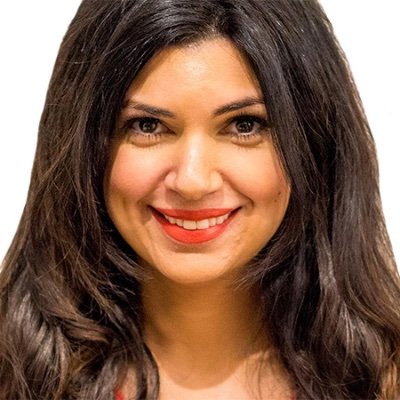
Ariane Sherine is a photographer, journalist, and singer-songwriter (under the artist name Ariane X). She has written for the Guardian, Sunday Times, and Esquire, among others.
She is also a comedy writer with credits for the BBC and others, as well as the brilliant (if dark) novel Shitcom.
Check Ariane Sherine Photography.
You must confirm your public display name before commenting
Please logout and then login again, you will then be prompted to enter your display name.
